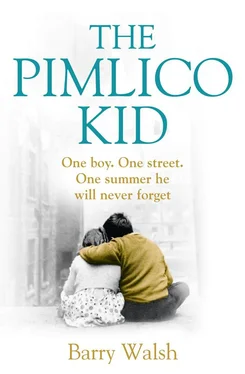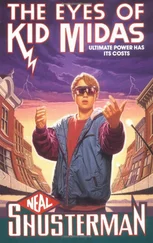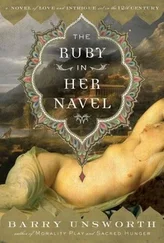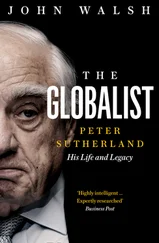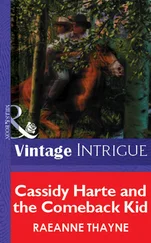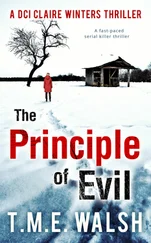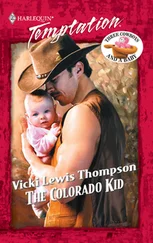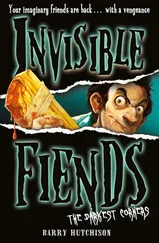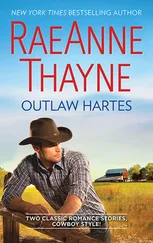Her face is so close. Talking has made her breathless too. Embarrassed, she shifts forward on the seat. I’m afraid that she’s getting up to go, but she’s pushing down with her feet to sit further back. Now the sunlight can reach her hair through the rear window and her face shines like it’s a Technicolor close-up of the heroine in a Western. I move closer. She looks away but slides her hand over mine. To the sound of our breathing, we stare ahead. Through the windscreen, the roads of Cumberland and Somerset stretch before us in a sunny world in which I will drive a sports car with Sarah beside me, and she’ll put her head on my shoulder. After several minutes I say, ‘I can’t wait to be able to drive.’
The door opens with a rich click. Mr Richards ducks his head inside. ‘All done, time to lock up.’ His eyes narrow and he sniffs. ‘What is that? It’s not fish is it?’
I haven’t noticed the smell until now. The whiting has soaked through its paper wrapping and there’s a damp patch on the beige carpet. The Bournvita will be OK but I fear for the flavour of Ada’s Weights.
I snatch up the string bag and stammer, ‘It’s for Mrs Holt.’
‘Well, whoever it’s for you can take it out of my car.’ He holds the door wide open and for a moment it feels as if he’s my chauffeur.
I step past him. ‘Thank you.’ I’m only being polite but Mr Richards doesn’t see it that way and he’s about to say so, when Sarah stops him. ‘Dad, please … it’s all right.’
I walk away.
Sarah calls out, ‘Bye.’
I wave and keep going. I turn the street corner and start running as if I could keep it up for ever.
Strength, Thrift and Gigli
Dad breaks clocks. Every now and again, a snap and a metallic uncoiling signal the end of another innocent Westclox. Death follows a brief whirring of detached innards failing to turn the luminous hands. This is when Mum starts shouting.
This evening she has caught Dad as his hand settles nonchalantly on the mantelpiece. She reaches around him to snatch the clock and hold it safely against her stomach. He throws up his hands and smiles.
‘I’ll wind it,’ she says.
He winks at John and me. ‘Fair enough, Maureen.’
She lifts the winder’s butterfly top and turns it with the tips of her fingers to demonstrate how it should be done: a gentle ratcheting that doesn’t go too far. Showing him, for the hundredth time, how every task in hand needs careful attention.
She sets it back on the mantelpiece. ‘Now leave it, I’ll bring it when I come to bed.’ During the day it’s a kitchen clock, at night it sits on the table by their bed.
Dad is nothing if not thorough, but he can’t resist the final turn that destroys the heads of already embedded screws, or the last twist of the tap that chews up washers. At Christmas, he literally blows up balloons. John and I have hidden the bicycle pump since the time he continued pumping a rock-hard tyre after a squeeze convinced him that it was well short of its right pressure. The bang from the exploding inner tube lifted Chris from his slumbers on Ada’s windowsill and dumped him spitting and wailing in our backyard.
Accuracy isn’t his strong point either but we love watching him miss at the coconut shy at Battersea Funfair just to see the vertical ripples that roll around the canvas marquee wall after each thump of a wayward wooden ball.
To placate Mum, he picks up the dinner plates from the table and slides them into the sink with enough noise to get her to bar him from clearing the rest. He stands back, eyeing the clock furtively, his big fingers twitching. Mum catches John grinning.
‘It’s not funny. Your father’s lack of self-control wastes our hard-earned money.’
We stay quiet because she’s taken the deep breath that means she hasn’t finished. Dad, too, is paying close attention; he’s heard what she’s about to say before but he’s going to have to hear it again.
‘Nothing is safe when he gets his hands on it.’ She catches Dad winking at us. ‘What is wrong with you? It’s not as if you don’t know your own strength, you do …’
John and I struggle not to laugh. She takes a threatening step towards us but weakens when she realizes that Dad, too, is choking back laughter.
She returns to the sink. ‘I give up.’
‘That’s the way he is,’ Aunt Winnie told us when Mum wasn’t around. ‘Easygoing chap, your Dad, but when something gets in his way, he has to push.’ With a phlegmy chuckle, she added, ‘Then it’s best to back off, ask the Colquhoun brothers.’
The Colquhouns are beefy scaffolders who used to throw their weight around in the Queen Anne until Dad got them to apologize for picking on Michael O’Rourke’s father. Aunt Winnie told the story as if Dad were Burt Lancaster seeing off the Clantons in the Gunfight at the OK Corral .
When he left the navy, Dad didn’t go back to Ireland because he’d met Mum when on shore leave during the war. She had left Cumberland looking for excitement in the Capital but found only long days in a munitions factory. When the war ended, they decided to stay in London because even bomb-blasted Pimlico gave them more than they could hope for in Ireland or Cumberland, so they stayed and made it home. As a result, even though John and I are Londoners, we have no relatives living nearby, unlike our Cockney friends, who have loads of cousins and two homes: their own and their Nan’s.
Dad wears a cap to work and on Sundays he sports a trilby that he tugs down over his right eye: the ‘ Connemara side ’. On the days he doesn’t go to work, he’s bursting with energy. This is often expressed in a shouted ‘hup’ as, with a flip of his heels behind him, he accelerates to complete short trips, like crossing roads or climbing steps – or, sometimes, to end tricky conversations with Mum.
When we were little, he used to wait till we were walking ahead of him before tearing past us, shouting ‘zing’ and jogging backwards, challenging us to catch him. Then he’d turn and run in slow motion until we overtook him. ‘God, if these boys haven’t wings on their feet,’ he’d complain, before shaking our hands to congratulate us on another fine victory.
Most evenings, a whistled Joseph Locke song and the slap of the rolled up Evening Star announces his arrival. He has a key but he prefers to rap the knocker. When one of us opens the door, he crouches like a boxer and lunges to lift and clinch, and to administer a rub of his day-old beard and fill our nostrils with the smell of sand and cement from his clothes.
He’s a ganger for a group of men who lay concrete on building sites: tamping it down with a big beam of wood to even out floors, or pouring it into shuttering for walls and pillars. The more concrete a gang lays, the more it earns. It’s heavy work and he often falls asleep in the easy chair after his dinner. This is when Mum looks at him most tenderly and insists that we keep quiet. While he dozes, she picks bits of hardened concrete from his shirt but leaves those that are clinging temptingly to the small hairs of his cheekbones.
Dad gets a bit ‘soft’ in drink and regularly throws his pennies in the air for the kids to scramble after when he leaves the Queen Anne on Sunday afternoons. This infuriates Mum because she will walk to Victoria rather than take the bus to save fewer coppers than she sees bouncing around on the pavement.
‘If we all treated money the way your father does, there’d be little food on the table; what with giving money to tramps and buying drinks when it isn’t his turn, anyone would think we were made of money.’
Money isn’t something that worries Dad who’s convinced that it’s only a matter of time before we win the Football Pools. Every week, he slides the coupon into the Littlewoods envelope and insists that we all kiss it for luck: Mum, me, John and then him. Mum does so grudgingly because she believes that you get richer only by working hard and saving. His belief that we’ll win the Pools and chucking money to kids provides more fun than going on about how much things cost, but if Mum’s right, and she usually is, it’s probably a good thing she’s different to Dad.
Читать дальше
